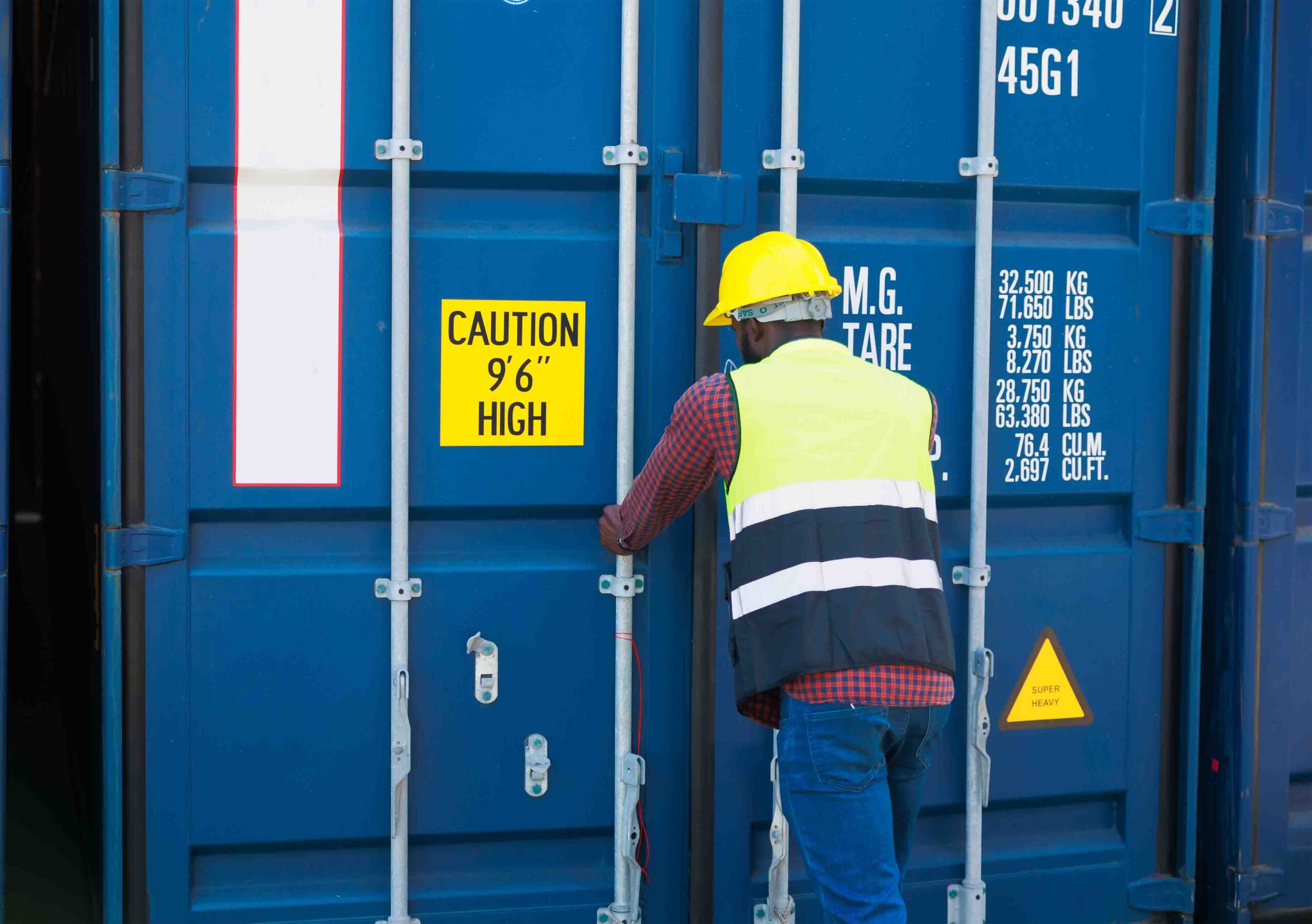
International transportation is a rapidly growing sector worldwide. As the volume of cross-border trade increases, international freight transportation has also become an important issue. However, security and risk management during international freight transportation are among the most critical topics. In this article, we will address the issue of load security and risk management in international logistics.
- What is Load Security in International Transportation?
Load security is very important in international transportation. Many countries conduct strict inspections to ensure that foreign goods are securely loaded when importing. These inspections are carried out upon entry into the country, and if any security risk is detected, the goods are refused entry. Therefore, exporters must take necessary precautions to keep their loads safe.
What Measures Should Be Taken for Load Security in International Transportation?
The necessary measures for load security in international transportation are as follows:
Quality Packaging: In international logistics, the load should be packaged using a high-quality packaging method. Proper packaging prevents damage to the load and helps it withstand weather conditions, shocks, and vibrations.
Proper Labeling: Correctly labeling the load prevents incorrect deliveries and ensures the load is delivered to the right place.
Secure Transportation Vehicles: The load should be transported using secure transportation vehicles. These vehicles ensure the safety of the load and prevent damage.
Customs Control: In international transportation, customs inspections are very important for load security. These controls are performed upon entry into the country, and if any security risk is detected, the goods are refused entry. Therefore, exporters must take necessary precautions to keep their loads safe.
Secure Storage: Proper storage of the load prevents damage and loss. Therefore, exporters should ensure that storage areas are reliable and secure.
Insurance: The load should be protected with insurance. Insurance covers damages in case of any harm during transportation.
Authorized Transportation Companies: The load should be transported by authorized international logistics companies. These companies play a very important role in load security during international transportation. International freight transportation is fraught with various dangers and should therefore only be carried out by professional and authorized transportation companies.
What Transportation Documents Are Required in International Transportation?
Today, international transportation is carried out quite extensively. Transporting products between countries is very important for export and import transactions. However, certain transportation documents are required to carry out these transactions.
Customs Documents
In international transportation, customs documents must be accurate and up-to-date. These documents ensure the correct delivery of the load and passing through customs controls.
- Invoice
The invoice is one of the most important documents in international logistics. Prepared by the exporter, it contains information such as the type of goods, quantity, and country of origin. It also includes details about the seller and buyer. The exporter sends the invoice to the importer to facilitate customs procedures for the goods.
- Bill of Lading
The bill of lading in international logistics is a document that certifies the vehicle transporting the goods and is necessary for the receipt of the goods. It includes the vehicle's license plate, route, type and quantity of goods, and delivery location. This document also plays an important role in resolving issues that may arise during transportation.
- Delivery Note
The delivery note is similar to the bill of lading but is a document that the recipient receives at the delivery location. Prepared by the exporter, it contains information such as the type and quantity of goods, delivery date, and recipient details. This document plays a crucial role in resolving potential issues during the delivery process in international logistics.
- Customs Declaration
The customs declaration is a document required for customs clearance of goods. The exporter must prepare a customs declaration before the goods can be processed at customs. It includes details such as the type, quantity, value of the goods, and customs duties. It also states from which country to which the goods are sent.
- Transit Document
The transit document is necessary for vehicles or loads passing through one country to another without customs checks. It is very important for regulating trade between countries. Especially for companies engaged in international trade, the transit document facilitates fast and secure trade.

What Precautions Should Be Taken for Load Security in International Transportation?
Load security in international transportation is a critical issue for the safe delivery of materials. During such international logistics, many precautions should be taken, such as proper packaging of the load, correct selection of the transportation vehicle, and proper securing of the load during transit.
- Proper Packaging of the Load
One of the most important steps for load security in international transportation is proper packaging. The load should be packed with appropriate materials and methods. This will prevent damage during transit.
If possible, the load should be packaged with packaging materials designed according to its characteristics. These include wooden crates, pallets, containers, boxes, and cardboard cartons. Proper packaging helps protect the load from potential damages during transportation.
- Correct Selection of the Transportation Vehicle
Another important step for load security in international transportation is choosing the right transportation vehicle. The vehicle should be selected based on the load's characteristics and transportation conditions. Additionally, the suitability and safety of the vehicle should be considered.
Factors such as the weight, size, and shape of the load should be considered to determine if the vehicle is appropriate. The safety of the vehicle should also be taken into account. The vehicle must be properly maintained and secure.
- Proper Securing of the Load
Another crucial step in load security for international logistics is properly securing the load. The load must be fastened in a way that prevents movement during transit. This prevents damage to the load and the tipping over of the vehicle.
Why Is Risk Management Important in Transportation?
Risk management is extremely important in international logistics operations. Businesses can transport goods and belongings safely by minimizing potential risks during transportation. This increases customer trust, enhances the company's reputation, and helps attract more customers.
Furthermore, the risks faced in the transportation sector pose significant threats not only to customers but also to businesses. For example, in case of an accident resulting in damage to the customer's goods or belongings, companies may suffer serious financial losses. Additionally, legal processes and penalties resulting from accidents can damage the company's reputation and negatively impact future customer potential.
Vehicles and Equipment Used in International Transportation
The transportation sector is of great importance today. Domestic and international transportation operations are among the processes that need to be carried out quickly and securely. Therefore, the vehicles and equipment used in international logistics are very important.
Maritime Transportation
Maritime transportation is one of the most widely used international logistics methods worldwide. Ships used in this method allow for transporting much larger quantities of goods. Maritime transportation ships can be classified as container ships, Ro-Ro ships, tankers, and passenger ships.
Container ships are specially designed for transporting containers. These ships can carry hundreds of thousands of containers and handle a large portion of global trade volume. Ro-Ro ships are mainly used for vehicle transportation. These ships allow vehicles to be driven onto the ship for transport.
Tankers are used for liquid transportation. Tankers, frequently used for transporting oil, gas, and chemicals, are among the largest ships worldwide. Passenger ships are used in the tourism sector and are among the popular holiday alternatives worldwide.
Road Transportation
Road transportation involves moving loads via roads. This method is particularly suitable for short distances. Road transportation vehicles include trucks, lorries, buses, and trains.
Trucks are frequently used for small-scale loads. Lorries are preferred for large-scale cargo. Trains are highly effective for transporting high-capacity loads, and rail transportation is an economical option.






